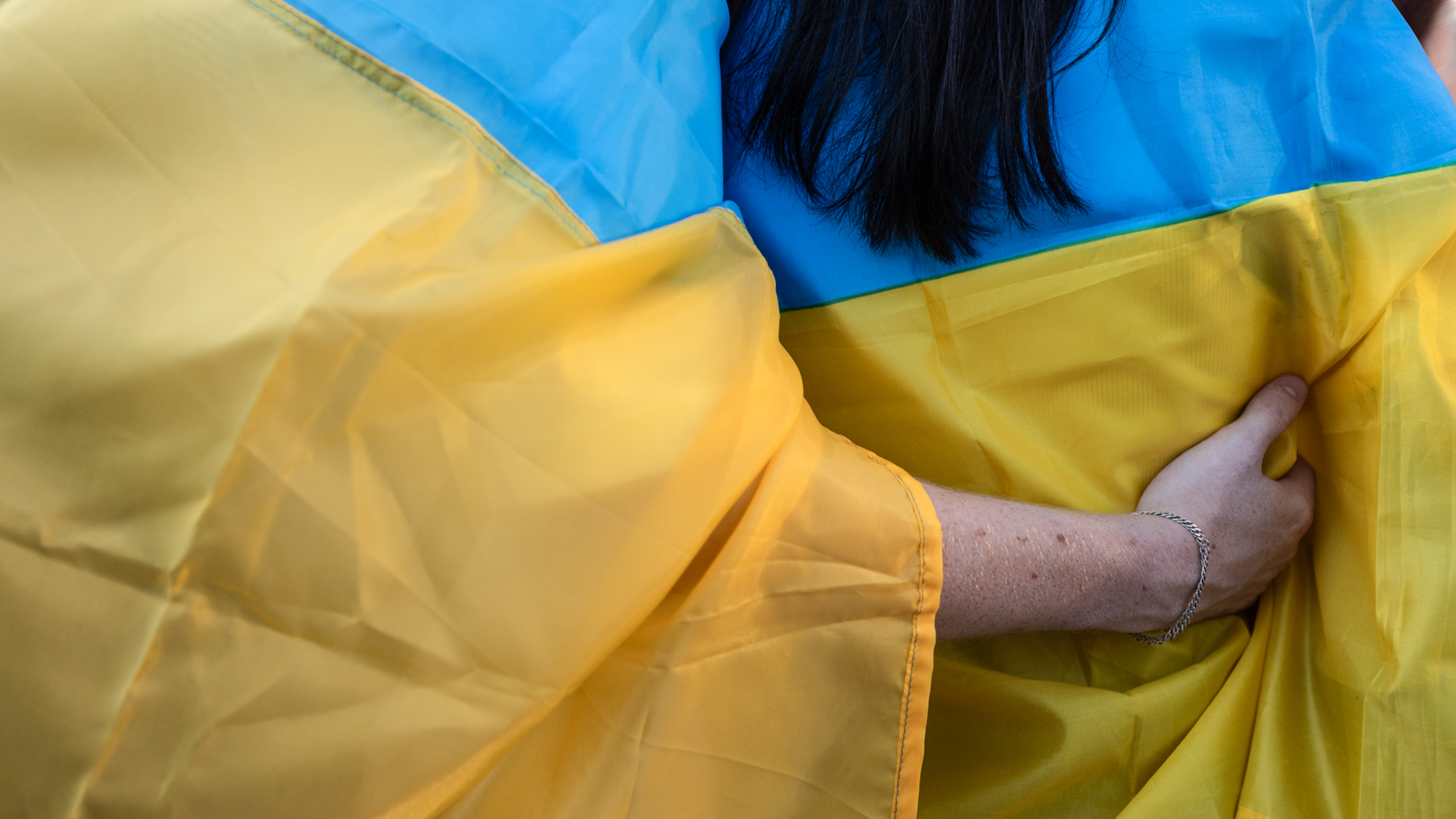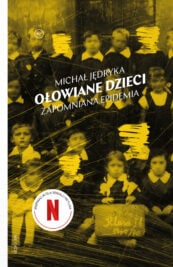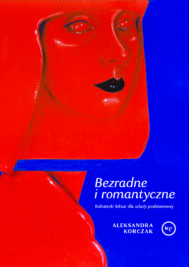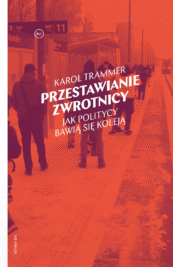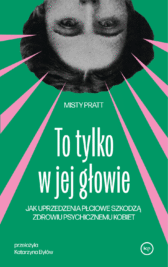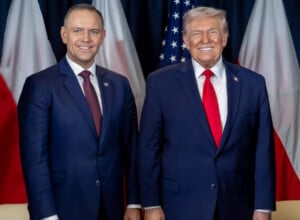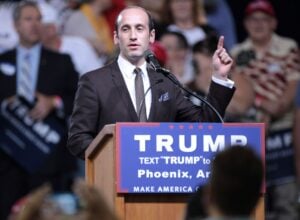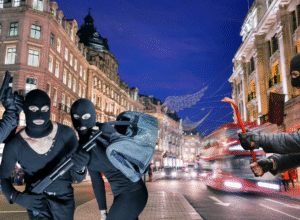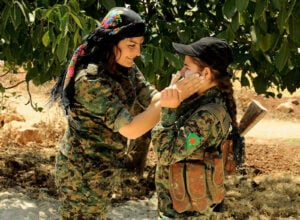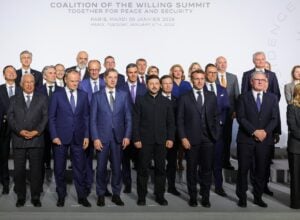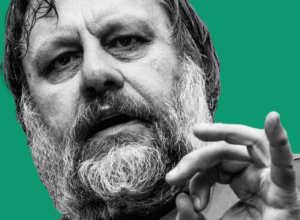Tysiąc dni od wybuchu pełnoskalowej wojny Kijowowi trudno ukryć zmęczenie. Pracownicy restauracji, aptek i sklepów wytaszczyli już na ulice generatory – po niedzielnych ostrzałach zaczęło brakować prądu. Ulicami, jak co zimę, niesie się rozpisany na głosy warkot silników diesla. Pozwalają miastu żyć, ale hałasują i śmierdzą. Irytują przechodniów i tak już niedospanych przez nocne alarmy powietrzne. W wielkomiejskim tłumie widać coraz więcej weteranów – wielu z nich straciło na wojnie nogę lub rękę. Jedni im salutują, inni, zawstydzeni, odwracają wzrok.
Kijowska kawiarnia spiera się o poranny proces Sierhija Gniezdiłowa, aktywisty i żołnierza, który opuścił swoją jednostkę na znak protestu przeciwko niesprawiedliwości: milion mężczyzn walczy bez widoków na demobilizację, a pięć milionów nie, i państwo sobie z tym nie radzi. Został oskarżony o dezercję, sąd przedłużył właśnie jego areszt. Wieczór przyniesie nowy temat sporów: najnowsze badanie Instytutu Gallupa. Wynika z niego, że już ponad połowa Ukraińców (52 proc.) chce zakończenia wojny tak szybko, jak to możliwe.
W pierwszych dwóch latach wojny była to bardzo niepopularna opinia. Większość Ukraińców uważała, że Ukraina powinna walczyć aż do zwycięstwa. Ich odsetek spada – obecnie tego zdania jest 38 proc. ankietowanych. Badanie przeprowadzono w sierpniu i październiku.
Postulat negocjacji z Rosją – które mogą, choć nie muszą pociągać za sobą straty terytorialne – należał długo do sfery tabu. Ale im krwawsze żniwa zbierała wojna, tym częściej w ukraińskich kuchniach można było usłyszeć, że może odpuścić już ten Donbas i Krym, że zbyt dużo ludzi straciliśmy, że koszty wojny są zbyt wysokie. Słowa tego rodzaju rzadko padały z ust opiniotwórczych elit – dziennikarek, pisarzy, aktywistek. A już na pewno niewypowiadane publicznie.
W ostatnich miesiącach zaczęło się to zmieniać. Socjologowie wskazują, że wpłynęła na to postawa prezydenta Wołodymyra Zełenskiego, który zaczął publicznie przebąkiwać o „negocjacjach”, legitymizując tym samym dyskredytowane wcześniej jako defetystyczne przekonanie, że wojna może skończyć się inaczej niż militarnym zwycięstwem Ukrainy. I choć według badań wiarę w zwycięstwo na polu walki deklarowało w czerwcu 66 proc. Ukraińców, coraz częściej można spotkać się z opinią, że to myślenie życzeniowe. Sytuacja na froncie nie napawa optymizmem, w armii brakuje ludzi, a Zachód pomaga w stopniu, który nie wystarcza nawet na utrzymanie status quo. Rosjanie powoli, ale systematycznie posuwają się do przodu.
Badania pokazują też, że do negocjacji oraz wszelkich ustępstw bardziej skłonne są ostrzeliwane niemal codziennie południe i wschód, znacznie mniej – względnie spokojny zachód. O zdanie pytano cywilnych, bo żołnierzy przebadać się nie da. Często słychać opinię, że to właśnie do nich powinna należeć potwornie trudna decyzja o przyszłości wojny. Ale i w wojsku – wnioskując z niekończących się facebookowych dyskusji – zdania są podzielone.
Kijów jest zmęczony, jednak nie zmienia to faktu, że wciąż wibruje. Odkąd byłam tu ostatni raz, w kwietniu, w mieście otworzyło się sporo nowych kawiarni, księgarni, można nawet pójść na rejw – w ciągu dnia, bo w nocy obowiązuje godzina policyjna. Ukraińskie państwo wciąż działa, a ukraińskie społeczeństwo obywatelskie – kto wie, czy nie najaktywniejsze i najwytrwalsze we współczesnej historii świata – dostosowuje się do zmieniającej się sytuacji. Co chwila słyszy się o nowych projektach. W ostatnim czasie udało się mu m.in. zmusić Ministerstwo Obrony, by ułatwiło żołnierzom przeniesienie się do innej jednostki (za pomocą aplikacji Armia+), stworzyć kurs składania dronów w cywilnej kuchni oraz platformę, która ułatwia recykling wojennego gruzu.
Zaangażowana część społeczeństwa rzadziej dopuszcza do siebie jakiekolwiek negocjacje z Rosją. Niektórzy zarzucają wielkomiejskiej bańce, że to dlatego, że nie splamiła sobie ona rąk krwią, ale jest to prawda tylko częściowa. Owszem, na wojnę w pierwszej kolejności rzucono niewykształconych z mniejszych ośrodków i tych, których nie stać na łapówki. Jednak w obliczu niedoborów wojsko przychodzi obecnie i po elitę. A jej przedstawiciele i przedstawicielki nierzadko zgłaszały się do niego dobrowolnie.
Nie jest też tak, że obstawanie za walką do pełnego zwycięstwa jest świadectwem odklejenia od rzeczywistości. Nie chodzi tu przecież tylko o patriotyczny upór i poczucie straconych trzech lat. Argumenty przeciwko rozpoczęciu negocjacji są mocne. Z terrorystami się nie negocjuje – głosi jeden z nich – bo dasz im palec, wezmą całą rękę. Poza tym, jaką Ukraina ma gwarancję, że oddanie Putinowi części terytoriów w zamian za zawieszenie broni będzie respektowane? Doświadczenia porozumień mińskich z 2014 i 2015 roku każą sądzić, że żadną.
Bez zwiększenia pomocy militarnej ze strony swoich sojuszników Ukraina dobrego wyboru nie ma. Albo się wykrwawi, albo zaryzykuje pauzę, która może skończyć się dla niej (a także jej sojuszników) jeszcze gorzej. Dyskusja o przyszłości wojny w obecnych realiach to wybór między dżumą a cholerą.

 Wspieraj
Wspieraj 

 Wspieraj
Wspieraj  Wydawnictwo
Wydawnictwo 
 Zaloguj się
Zaloguj się 
